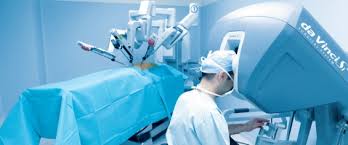“Expert Urologic Surgeon: Specializing in Prostate, Bladder, and Kidney Disorders”

Urology Surgeon is a branch of medicine that deals with the diagnosis and treatment of conditions related to the urinary tract in both men and women and the reproductive system in men. Urologic surgery is a subspecialty of surgery that involves surgical procedures to treat a wide range of urologic conditions. These procedures may be minimally invasive or complex, depending on the specific condition and its severity.
Urologic surgeries can include:
- Prostate surgery: This is a common procedure for treating prostate cancer, benign prostate hyperplasia (BPH), and other prostate-related issues.
- Bladder surgery: This can involve surgical procedures to treat bladder cancer, bladder incontinence, or other bladder-related issues.
- Kidney surgery: This can involve the removal of a kidney, partial nephrectomy, or other procedures to treat kidney conditions such as kidney stones, tumors, or obstruction.
- Testis surgery: This can involve procedures to treat testicular cancer, testicular torsion, or other testicular-related issues.
- Penile surgery: This can involve procedures to treat penile cancer, Peyronie’s disease, or other penile-related issues.
Urologic surgeons use advanced technology and techniques to perform these procedures, including laparoscopy, robotics, and endoscopy. These minimally invasive procedures result in less pain, faster recovery times, and smaller incisions compared to traditional open surgeries.
What We Should Know About the Urology Surgeon:
However, not all urologic conditions can be treated with minimally invasive procedures. In some cases, traditional open surgery may be necessary to achieve the best outcome for the patient. The decision on which type of surgery to perform is based on the specific condition, the patient’s overall health, and the surgeon’s expertise.
Patients should choose a urologic surgeon who is trained and experienced in the specific type of procedure they need. Patients should also consider the surgeon’s track record, including their success rates, patient satisfaction, and any complications they have encountered. It’s also important for patients to have a clear understanding of the procedure, including what to expect before, during, and after surgery.
Before the procedure, patients will undergo a comprehensive evaluation by the urologic surgeon to determine the best course of treatment. This may involve a physical exam, laboratory tests, imaging studies, and other diagnostic tests. The urologic surgeon will also discuss the risks, benefits, and alternatives to the procedure with the patient.
During the procedure, the patient will be placed under general anesthesia or regional anesthesia, depending on the type of procedure and the patient’s individual needs. The surgeon will perform the procedure and may use advanced technology and techniques to minimize any discomfort and improve the overall outcome.
Urology Surgeon How Its Work?
After the procedure, patients will typically experience some pain and discomfort, but this can usually be managed with medication. The recovery time will depend on the specific procedure and the patient’s overall health, but most patients can expect to return to their normal activities within a few weeks.
In conclusion, urologic surgery is a subspecialty of surgery that involves the treatment of conditions related to the urinary tract and reproductive system. Patients should choose a qualified and experienced urologic surgeon to ensure the best outcome. The use of advanced technology and techniques can minimize discomfort, speed up recovery times, and improve the overall outcome of these procedures.
Urology Sureon How To Get It?
Getting a Urology Surgery typically involves the following steps:
- Consultation with a primary care physician: If you suspect you may have a urologic condition, the first step is to consult with your primary care physician. They will perform a preliminary evaluation and may refer you to a specialist.
- Consultation with a urologist: A urologist is a physician who specializes in the treatment of conditions related to the urinary tract and reproductive system. They will perform a thorough evaluation to determine the best course of treatment for your specific condition.
- Evaluation and diagnostic tests: The urologist will likely perform a physical exam, laboratory tests, and imaging studies to diagnose your condition. They may also perform other diagnostic tests as needed.
- Treatment planning: The urologist will discuss the treatment options with you, including the risks, benefits, and alternatives. They will also develop a treatment plan tailored to your specific needs.
- Surgery: If surgery is deemed necessary, the urologist will perform the procedure. You will typically be placed under anesthesia, and the procedure will be performed in a hospital setting.
- Follow-up care: After the surgery, the urologist will provide follow-up care to monitor your recovery and address any concerns. They will also advise you on any lifestyle changes or restrictions to ensure a successful recovery.
It’s important to choose a qualified and experienced urologic surgeon who has a track record of success with the specific procedure you need. You can also ask for recommendations from your primary care physician, family, and friends. Before scheduling the surgery, be sure to discuss any concerns or questions you may have with the surgeon and their staff.
Urology Sureon How Its Work?
Urology surgery is performed to treat conditions related to the urinary tract and reproductive system. The specific surgical procedure will depend on the condition being treated. Some common urologic procedures include:
- Prostate surgery: This can involve the removal of all or part of the prostate gland to treat conditions such as prostate cancer, benign prostatic hyperplasia (BPH), or prostatitis.
- Bladder surgery: This can involve the removal of all or part of the bladder, or the creation of a new bladder using part of the intestine, to treat conditions such as bladder cancer or bladder dysfunction.
- Kidney surgery: This can involve the removal of a kidney to treat conditions such as kidney cancer, renal cysts, or stones.
- Ureteral surgery: This can involve the repair or reconstruction of the ureter to treat conditions such as ureteral strictures or blockages.
- Male genital surgery: This can involve the repair or reconstruction of the penis, scrotum, or testicles to treat conditions such as hypospadias, testicular torsion, or inguinal hernia.
- Female genital surgery: This can involve the repair or reconstruction of the uterus, ovaries, or fallopian tubes to treat conditions such as uterine prolapse, ovarian cysts, or endometriosis.

If you want to get amazing benefits by using this link
Conclusion:
Most urologic surgeries are performed using minimally invasive techniques, such as laparoscopy or robotics, which reduce the risk of complications and speed up recovery times. During the surgery, the surgeon will make small incisions and use specialized instruments to access the affected area.
Regardless of the specific procedure, the goal of urology surgery is to relieve symptoms, restore normal function, and improve quality of life. The surgeon will work closely with you to develop a personalized treatment plan and address any concerns you may have.

